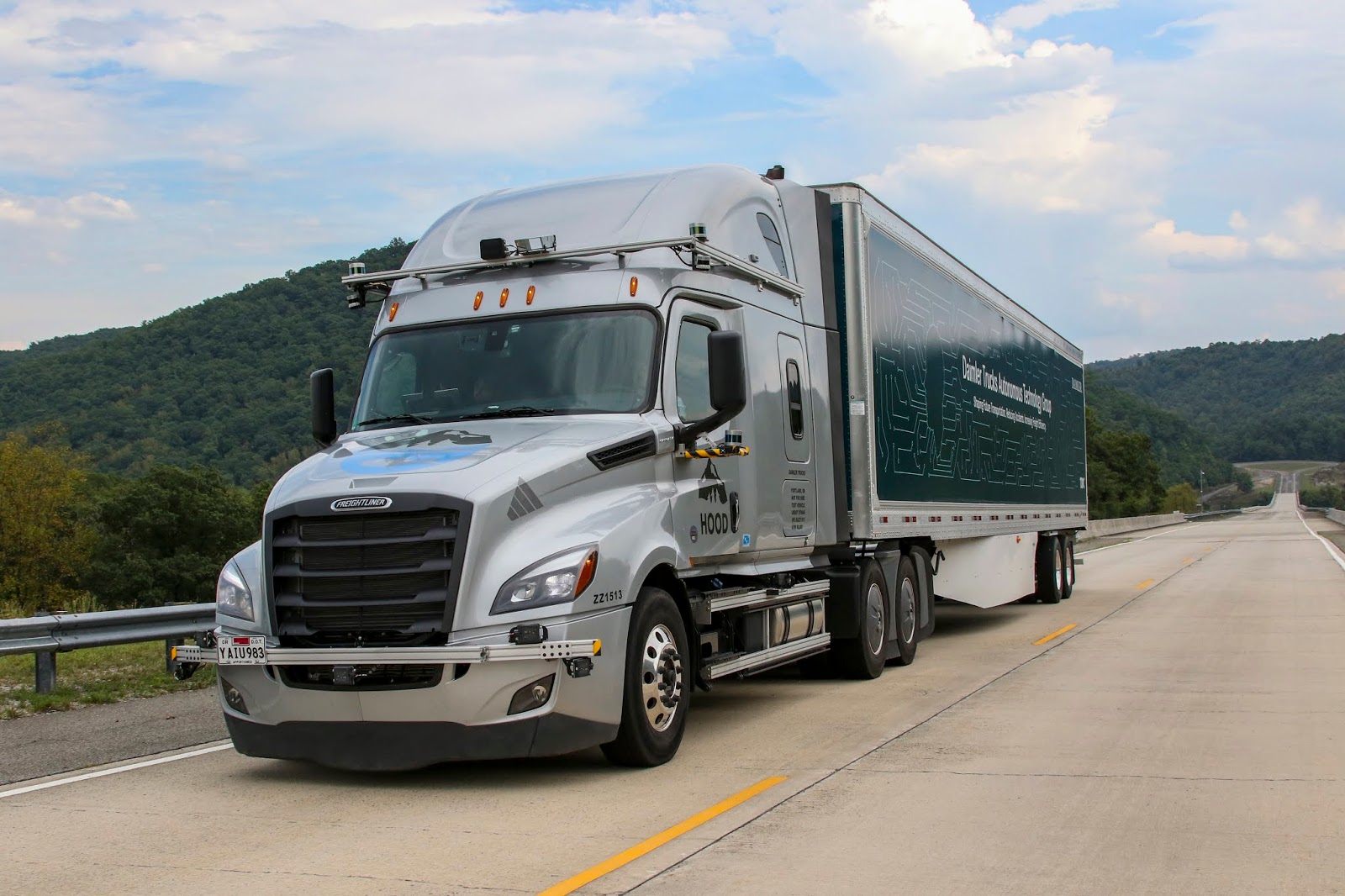- General
- September 9, 2019
- 6 minutes read
Daimler Begins Testing Driverless Trucks On Public Roads
A Daimler self-driving truck image: Daimler German auto giant Daimler has announced that it has begun developing and testing self-driving trucks…
 |
| A Daimler self-driving truck
image: Daimler
|
German auto giant Daimler has announced that it has begun developing and testing self-driving trucks on public roads in partnership with Torc Robotics, a Blacksburg, Virginia based self-driving firm it took a majority stake in earlier this year. Daimler’s self-driving trucks are being tested on highways in southwest Virginia, where Torc Robotics is headquartered. As the case has always been, a backup driver and an engineer are always present in the self-driving trucks. Daimler says its trucks are of “Level 4” standard.
The deployment on public roads comes after months of testing and safety validation on an enclosed loop track. Daimler says it’ll continue to work on self-driving technology for heavy-duty trucks. “Torc Robotics is a leader in automated driving technology. Daimler Trucks is the market leader in trucks and we understand the needs of the industry. Bringing Level 4 trucks to the public roads is a major step toward our goal to deliver reliable and safe trucks for the benefits of our customers, our economies and society.” Daimler Trucks CEO Martin Daum said in a statement.
In June, Daimler formed a new self-driving division, which it put Torc Robotics under after its acquisition. Torc has existed since 2005, meaning it has lengthy experience in the self-driving industry, even older than various incumbents like GM Cruise, Uber, Waymo, Aurora, Pony.ai and more. Torc operates a self-driving system named “Asimov”, and has tested it in urban and long-distance routes as well as in rain, fog, snow and varying light conditions. “Being part of Daimler Trucks is the start of a new chapter for Torc,” Torc Robotics CEO Michael Fleming said in a statement. “Our whole team is thrilled to be working alongside our Daimler colleagues as we pursue the commercialization of Level 4 trucks to bring this technology to the market because we strongly believe it can save lives.”
Daimler is just one of out several automakers that have invested significant resources to develop self-driving technology. Such automakers are also competing with several newer but well-funded startups that are focused solely on self-driving tech. One example is TuSimple, which recently got an investment from UPS. TuSimple hit unicorn status earlier this year with a $95 million Series D and also recently got a contract to transport packages for the United States Postal Service (USPS). Another example is PlusAI, a Cupertino-based self-driving startup that’s reported to be raising funding at a $1 billion valuation.
Self-driving companies in the US and China have collectively raised billions in funding even without commercial businesses. Although some, like Alphabet’s Waymo, have began pilot robotaxi programs, the revenue from such programs is likely insignificant compared to development costs. However, with most companies still in R&D stage, the self-driving industry looks very hot, with one initiative or the other sprouting up every now and then. A most recent is that of Didi Chuxing, China’s Uber equivalent, which recent announced plans to pilot a robo-taxi service in China. This happened shortly after it raised $600 million from Toyota, and formed a newly independent self-driving unit.







